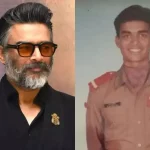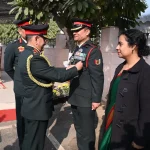The National Defence Academy (NDA) is a prestigious institution in India, heralded for grooming the nation’s future leaders in the armed forces. Situated in Khadakwasla, Pune, the NDA cultivates not only the physical endurance and combat acumen of its cadets but also their intellectual capabilities and character. The rigorous daily routine of NDA cadets is meticulously crafted to prepare them for the multifaceted challenges of military service. This article delves into the structured life of an NDA cadet, focusing on their daily activities, training regimes, discipline, and extracurricular opportunities that support their holistic development.
Historical Context
The foundations of the NDA were laid in 1954 when the need for a premier training institution was recognized to prepare cadets from all three services—Army, Navy, and Air Force. The formation of a joint service academy was revolutionary, promoting camaraderie and integrated training among the armed forces. Over the years, the NDA has evolved in its approach to training, focusing not only on physical prowess and military tactics but also on academic excellence and leadership development. As a result, the NDA has become synonymous with discipline and high standards, reflecting India’s commitment to a robust defence mechanism.
Typical Daily Schedule and Activities
The day at the NDA is nothing short of a boot camp experience, demanding sheer dedication and resilience. A typical day unfolds as follows:
Early Morning: 4:00 – 6:00 AM
The bell tolls at around 4:00 AM, heralding the start of a new day. The first sound many cadets hear is the reveille bugle, which effectively serves to wake them up. The cadets quickly freshen up before commencing intensive Physical Training (PT):
- Activities Include:
- Running: To build endurance and cardiovascular strength.
- Push-ups and Sit-ups: Strengthening core and upper body.
- Obstacle Courses: Developing agility and problem-solving under physical stress.
- Swimming and Horse Riding: Essential skills for various military operations.
This rigorous physical training not only builds fitness and stamina but also fosters mental resilience—qualities vital for military life.
Morning Drill and Parade: 6:00 – 7:30 AM
Post PT, cadets transition to military drill practice. Here they learn essential skills such as:
- Drill Formation: Enhancing synchronization and teamwork.
- Parade Conduct: Instilling discipline and attention to detail.
Like clockwork, under the watchful eyes of qualified instructors, cadets march in formation, reinforcing the foundational principles of military life.
Breakfast and Academics: 7:30 AM – 1:30 PM
Following a hearty breakfast, cadets immerse themselves in a robust academic curriculum orchestrated by Jawaharlal Nehru University (JNU), pursuing degrees in BA, BSc, or BCom. The subjects covered are diverse and geared towards developing a well-rounded officer:
- Sciences: Mathematics, Physics, Chemistry.
- Humanities: Political Science, Economics, History, Geography.
- Military Studies: Law, Tactics, and Weapon Handling.
The academic rigor ensures cadets emerge not only as competent military personnel but also as educated citizens capable of critical thought.
Afternoon Activities: 1:00 – 6:00 PM
After a nutritious lunch and a short rest, the afternoon is filled with engaging sports and specialized military training.
- Sports:
- Athletics, football, basketball, volleyball, and boxing—all contributing to team dynamics, physical fitness, and stress relief.
- Military Training: Cadets participate in hands-on training sessions focusing on weapon handling, map reading, and field tactics essential for their respective service branches.
This period reinforces both physical endurance and tactical skills, ensuring cadets are prepared for combat and leadership roles.
Evening Study and Leisure: 6:30 – 10:30 PM
The day winds down with a structured study period. Cadets engage in:
- Self-Study: Reviewing subjects to retain academic knowledge.
- Group Discussions: Encouraging cooperative learning and debate.
- Evening Meal: Dinner is a time for social interaction amongst peers before personal time.
By 10:30 PM, the day officially concludes, with lights out ensuring cadets get adequate rest, facilitating recovery for their demanding schedules.
Training and Discipline
Discipline permeates every aspect of life at the NDA. Adherence to strict schedules and duties fosters self-discipline and responsibility among cadets. The following elements define the disciplined training environment:
- Punctuality and Decorum: Cadets are trained to embody punctuality, reflecting their commitment and readiness as future officers.
- Leadership Training: Regular leadership development modules enhance decision-making skills, battlefield awareness, and command capabilities, crucial for effective future leaders.
- Physical Endurance Tests: With programs that include long runs and rigorous drills, cadets develop both mental and physical resilience.
Such a disciplined regimen cultivates well-rounded individuals who can manage stress and perform efficiently under pressure.
Cadet Activities and Extracurriculars
A holistic approach to development extends beyond academics and training. NDA cadets engage in numerous extracurricular pursuits designed to cultivate their interests and enhance their social skills.
Outdoor Activities
Outdoor excursions are integral to fostering teamwork, confidence, and physical prowess. Activities like:
- Trekking and Rock Climbing: These expeditions build resilience and encourage a spirit of adventure.
- Water Sports: Facilities for kayaking, sailing, and swimming are also available, catering to various skill levels.
Clubs and Indoor Activities
The NDA also offers numerous clubs focusing on non-academic skills, such as:
- Arts, Music, and Literature: Encouraging creativity and self-expression, cadets can participate in drama, poetry, and music.
- Public Speaking and Debate Clubs: These platforms sharpen critical thinking and communication skills, essential for any officer.
Cultural Events
The NDA hosts various cultural programs, debates, and seminars incentivizing cadets to interact with civilians and broaden their perspectives. Such events encourage cadets to appreciate diverse viewpoints, shaping them into culturally aware leaders.
Statistical Data and Research Insights
The current curriculum and training regimes at the NDA are the outcome of extensive research and strategic planning. According to the NDA’s official records:
- Physical training accounts for nearly 30% of a cadet’s daily schedule, with structured assessments to ensure optimum physical health.
- Academic assessments occur regularly, contributing to a cumulative grading system that emphasizes academic rigor alongside physical training.
The dynamically integrated model of training sustains a balance between intellectual and physical growth, yielding officers who are well-equipped to lead.
Challenges and Solutions
Life at the NDA is highly demanding, leading to several challenges for cadets, such as the stress of transitioning to a new lifestyle and coping with rigorous expectations. Some common challenges include:
- Adapting to Military Life: The abrupt shift from civilian life to military rigor can be daunting for many cadets.
- Physical and Academic Pressure: Balancing demanding physical training with rigorous academic study can lead to stress.
Potential Solutions:
- Mentorship Programs: Pairing new cadets with experienced peers can foster a supportive environment, easing the transition.
- Wellness Resources: Providing mental health resources and regular wellness checkpoints can help cadets manage stress effectively.
Future Trends and Predictions
As the NDA continues to innovate and adapt to new educational paradigms, the future may bring several changes:
- Increased Technological Integration: Emphasis on cybersecurity and other technological advancements is expected to play a larger role in the curriculum.
- Emphasis on Joint Exercises: More training with international military institutions can broaden cadets’ perspectives and enhance collaborative skills.
- Sustainability Practices: As global awareness regarding climate change increases, future training might incorporate sustainability practices in military operations.
Such trends will likely shape the next generation of officers, focusing on adaptability, global awareness, and responsibility.
Conclusion
The daily routine of NDA cadets is a well-oiled machine that cultivates physical, mental, and social skills vital for future military leaders. From the break of dawn to lights out, each aspect of their day is steeped in discipline and purpose. The integration of academics, rigorous physical training, and diverse extracurricular activities ensures that cadets emerge as competent, resilient, and well-rounded officers prepared to uphold the values of the Indian Armed Forces. As they navigate their rigorous schedules, they learn essential life skills—leadership, responsibility, teamwork, and resilience—over the course of their transformative journey at the NDA. For aspiring cadets, understanding this lifestyle provides insight into the commitment and dedication required to serve the nation with honour and integrity. Thus, the NDA not only prepares individuals for military service but also shapes them into exemplary citizens.












